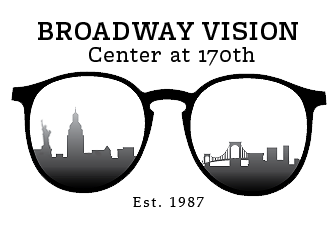Top Optometrist in New York City - 2024
List of the Top Optometrist in New York City
Wimgo takes pride in showing unbiased reviews on user satisfaction in our ratings and reports. We do not allow paid placements in any of our ratings, rankings, or reports.
Contact Dr. Connie Dong


New York Vision Associates Inc
Service Focus
Contact New York Vision Associates Inc


Drs Alan B. Schlussel and Christine Law, O.d
Service Focus
Contact Drs Alan B. Schlussel and Christine Law, O.d
Frequently Asked Questions About Optometrist
Here are some questions you can ask an optometrist;
● What tests will you be running?
● What is the condition of my eyes?
● Do I need to see an Ophthalmologist?
● What do my symptoms mean?
● Should I be wearing glasses?
● Can I wear contact lenses?
● What are the treatment options for my eye condition?
● How can I maintain and monitor my eye health?
● How often do I need to come for an eye check-up?
Even though they are quite similar to Ophthalmologists, optometrists cannot perform surgery. That job is left for the Ophthalmologist to do. Optometrists can handle almost all aspects of Ophthalmology except the surgery part which is outside their job description.
Together with being able to diagnose, treat and also prescribe corrective lenses, optometrists can also prescribe medications when needed. Even though they are not medical doctors, they are trained health care personnel in the field of the eye and are in a position to prescribe medication to patients who need them.
An Optometrist is a health care professional that provides primary eye care to a patient. They can conduct tests, diagnose, treat and help maintain eye conditions. An Ophthalmologist, on the other hand, is a professional who treats all kinds of eye problems including performing surgery when needed. One major difference between both of them is that one is a medical doctor while the other is not. An Ophthalmologist is a medical doctor while an optometrist is not.
Optometrists are eye care professionals who can conduct eye tests, prescribe corrective lenses, and also detect eye abnormalities. These professionals provide primary eye care and can diagnose and also treat certain eye conditions.

Ny Lasik L&mi
Service Focus
Contact Ny Lasik L&mi

Need A Little Help?
Talk with a vendor expert for free. Get a list of companies
that will be great for you in just 15 minutes.

Eye & Health
Service Focus
Contact Eye & Health

Optyx | 2384 Broadway/87th St
Service Focus
Contact Optyx | 2384 Broadway/87th St

Eye Associates of New York
Service Focus
Contact Eye Associates of New York

Starbase Optometry P.c.
Service Focus
Contact Starbase Optometry P.c.

Eye Q Optometrist
Service Focus
Contact Eye Q Optometrist

Tribeca Eye & Health
Service Focus
Contact Tribeca Eye & Health

Anthony Aiden Opticians
Service Focus
Contact Anthony Aiden Opticians

Madison Avenue Eye Care
Service Focus
Contact Madison Avenue Eye Care

Westside Vision
Service Focus
Contact Westside Vision

Broadway Vision
Service Focus
Contact Broadway Vision

Manhattan Eyeworks Hells Kitchen
Service Focus
Contact Manhattan Eyeworks Hells Kitchen

Broadway Vision Center@147
Service Focus
Contact Broadway Vision Center@147

Manhattan Vision Associates
Service Focus
Contact Manhattan Vision Associates
© 2022 Wimgo, Inc. | All rights reserved.
